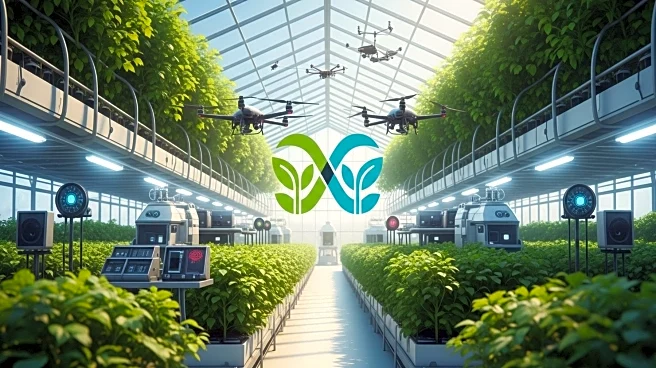What's Happening?
Corteva and Bayer have announced new partnerships as part of recent developments in the AgriFoodTech sector. Corteva has partnered with Profluent Bio to develop gene editing tools, while Bayer has teamed up with Cornfed Farms to create the first ForwardFarm in the Midwest. These partnerships are part of a broader trend in the industry, which includes Air New Zealand investing in nature-based carbon credits and Serve Robotics partnering with DoorDash. Additionally, the European Parliament is backing a ban on terms like steak, sausage, or burger for plant-based meats, and Tyson and Cargill are set to pay a $87.5 million settlement for beef price-fixing. The sector has seen a slowdown in fundraising but remains active in partnership announcements.
Why It's Important?
These partnerships and developments in the AgriFoodTech sector highlight the ongoing evolution and innovation within the industry. The collaboration between Corteva and Profluent Bio on gene editing tools could lead to advancements in agricultural biotechnology, potentially improving crop yields and sustainability. Bayer's partnership with Cornfed Farms aims to promote sustainable farming practices, which could have significant environmental benefits. The European Parliament's decision to ban certain labels on plant-based meats reflects the growing debate over food labeling and consumer perceptions. The settlement involving Tyson and Cargill underscores the importance of fair pricing practices in the meat industry, which could impact market dynamics and consumer trust.
What's Next?
The AgriFoodTech sector is likely to continue evolving with more partnerships and innovations. The outcomes of these collaborations, such as the gene editing tools from Corteva and Profluent Bio, will be closely watched for their impact on agricultural practices. Bayer's ForwardFarm initiative may serve as a model for sustainable farming, potentially influencing other companies to adopt similar practices. The European Parliament's labeling ban could lead to changes in marketing strategies for plant-based meat producers. The settlement involving Tyson and Cargill may prompt further scrutiny and regulatory actions in the meat industry, potentially leading to more transparent pricing practices.
Beyond the Headlines
The developments in AgriFoodTech reflect broader trends in sustainability and ethical practices within the food industry. The focus on gene editing and sustainable farming highlights the industry's shift towards environmentally friendly solutions. The labeling ban by the European Parliament raises questions about consumer rights and the transparency of food labeling. The price-fixing settlement involving Tyson and Cargill may lead to increased regulatory oversight, ensuring fair competition and protecting consumer interests. These changes could have long-term implications for industry standards and consumer expectations.









